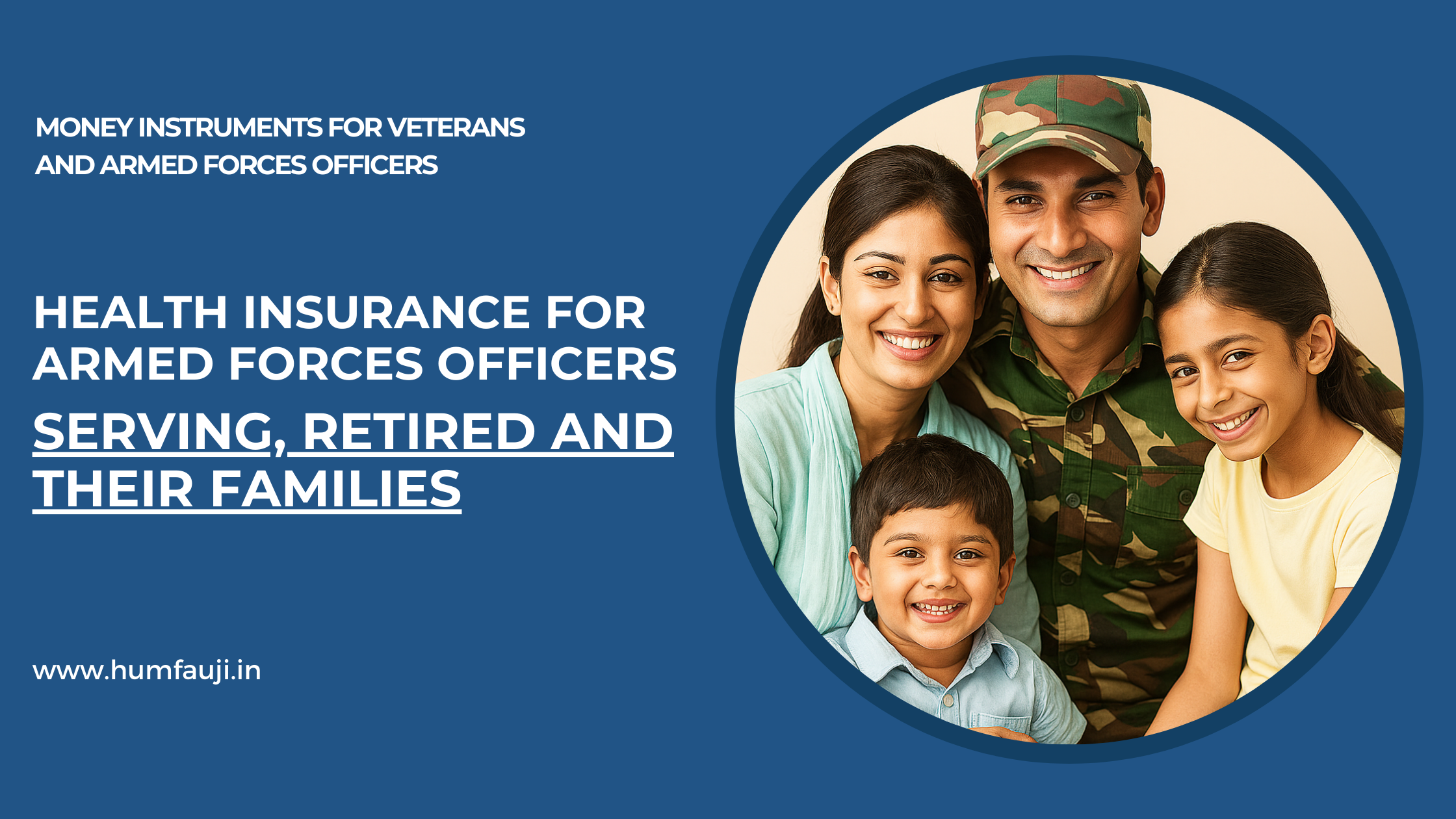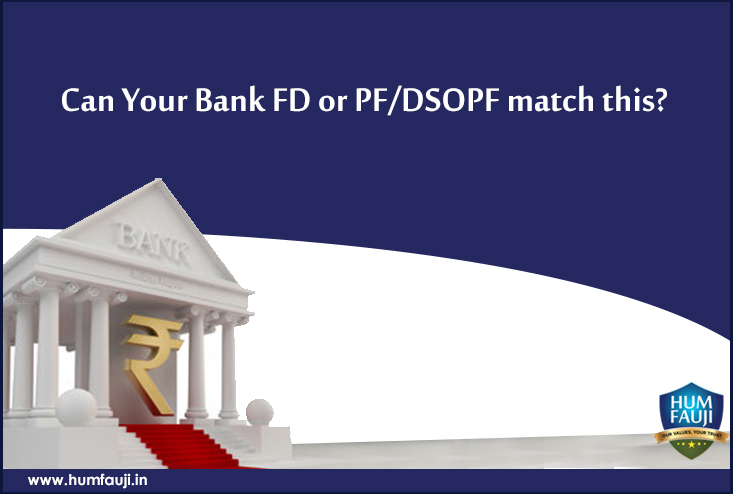Serving in the armed forces is a matter of pride. Gratefully, the armed forces personnel are taken care of by the government with a considerably comforting health corpus too. Officers dedicate their best years to protecting the nation, often putting personal comfort and family time on the back burner. The forces do provide excellent medical support through military hospitals and, later, the Ex-Servicemen Contributory Health Scheme (ECHS).
But here’s the truth most officers discover after retirement: access to these facilities isn’t always the same as it was during service. For many, the nearest ECHS or military hospital may be hours away, and specialised treatments might not be easily available, including through empanelled hospitals. That’s when private health insurance turns from being a ‘good-to-have’ into an absolute necessity.
It is very important to consider health insurance services for the members of the family who choose the civil service for their career and life.
Why Does Health Insurance Really Matter?
Imagine an officer who retired at 54 and chose to settle in his hometown in Himachal Pradesh. The nearest empanelled ECHS hospital is nearly 100 km away. When his wife needed an urgent knee replacement, relying solely on ECHS would have meant delays, travel, and a lot of stress
Having private insurance in place allowed them to get the surgery done at a reputable hospital in their own city, cashless and hassle-free.
Why is health insurance crucial even for armed forces officers & their families?
- Post-retirement access is reduced: military hospital priority is not the same after service.
- Medical costs are skyrocketing: a single surgery in a private hospital can eat into years of savings.
- Family’s convenience matters: Dependents may not always be near a service hospital when they need care.
- Life after service may be global: Some veterans travel abroad or settle outside cantonments, needing wider coverage.
What’s Available Today
- Military Hospitals: Free treatment during active service for you and your family.
- ECHS: A lifeline post-retirement, covering you, your spouse, and dependents. But empanelled hospital coverage can be patchy, especially in smaller towns.
- Private Health Insurance: Provides access to a much wider hospital network and cashless treatments, acting as a strong backup.
While Still in Service
Serving officers usually depend on military hospitals. But think of an officer posted in a field area while his family lived in his native place. His child fell ill, and since he was not there to take them to a military hospital quite a distance away, private insurance stepped in and ensured timely treatment.
That’s why private insurance, even during service, could be a good idea.
Useful options include:
- Top-Up Policies: Extra cushion when military hospitals or ECHS are not accessible.
- Family Floater Plans: Ensures the whole family is covered together more economically, with spouse and children never left waiting for care.
- Critical Illness Riders: Extra financial support in case of serious health issues.
Post Retirement Health Corpus—The Real Test
Health insurance truly shows its worth after superannuation. Buying it early is the smartest step; waiting until later can mean higher premiums and restricted options. Consider an officer who delayed buying insurance until age 60. By then, he was already managing diabetes and hypertension. The result? Limited coverage and very high premiums. Compare this with his coursematewho, who had taken a policy at 45—seamless coverage and much lower cost.
Options to consider:
- Senior Citizen Health Plans: Tailored to higher medical needs.
- Family Floaters: Especially useful if the spouse is younger.
- Top-Ups & Super Top-Ups: Enhance coverage without huge premiums.
- Critical Illness Covers: Safeguard against high-cost treatments.
Smart Things to Keep in Mind
- Start early: The younger you are, the cheaper the premiums.
- Check hospital tie-ups: Look for strong networks near your residence.
- Waiting periods: Pre-existing diseases usually have a 2–4 year waiting period.
- Claim settlement record: Choose insurers known for reliability.
Why ECHS Alone Isn’t Enough?
ECHS is no doubt a blessing for veterans. It provides affordable healthcare access across a large network of empanelled hospitals. But over the years, many officers and families have realised that depending only on ECHS can leave critical gaps in coverage.
- Limited Empanelled Hospitals
-
- In big cities, there are many empanelled hospitals, but in smaller towns or rural areas, choices are often very few.
- Example: A retired officer settled in his hometown in Bihar may have only one empanelled hospital nearby, and even that may not provide specialized care.
- Delays in Approvals & Treatments
-
-
- For certain treatments, pre-approvals and paperwork can cause delays.
- Example: A veteran’s wife needing emergency angioplasty might face critical hours lost if ECHS formalities aren’t cleared in time.
-
- Coverage Gaps for Specialised/Advanced Treatments
-
- Some modern treatments, robotic surgeries, or new therapies may not always be covered under ECHS limits.
- This can force families to either compromise on treatment or pay hefty amounts from their own pocket.
- Family Convenience
-
- Children or dependents living in metro cities often prefer reputed private hospitals closer to them, but these may not always be on the ECHS panel.
- Overseas Medical Needs
-
- If officers travel abroad post-retirement or settle outside India, ECHS doesn’t extend international coverage.
A private health insurance policy ensures that officers and their families get uninterrupted access to quality healthcare without worrying about approvals, availability, or geography.
Quick Checklist Before Buying Health Insurance
- Buy early: Don’t wait till retirement – premiums rise exponentially with age.
- Pick adequate coverage: Talk to us, and we will guide you on it as per your requirements and circumstances.
- Check the cashless hospital network: Ensure good hospitals near your residence are empanelled.
- Understand waiting periods, especially for pre-existing diseases.
- Add top-ups: A cheaper way to expand coverage as costs rise.
- Review the claim settlement ratio: the higher, the better—smooth claims matter most.
- Don’t rely only on ECHS: Treat it as a foundation, not the full plan.
For serving, retiring, or retired officers, health insurance isn’t just another financial product; it’s peace of mind. The best approach is to combine the strengths of ECHS with private health insurance. This way, no matter where you are, whether in a metro, a small town, or even abroad, you and your family always have access to quality healthcare. Consult an insurance expert at Hum Fauji Initiatives to know how.
The earlier you plan, the smoother your journey will be. After all, having served the nation with honour, you deserve nothing less than a worry-free, secure future for yourself and your loved ones.














Leave a Reply